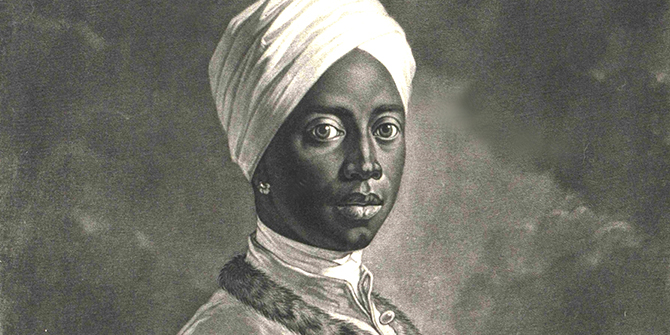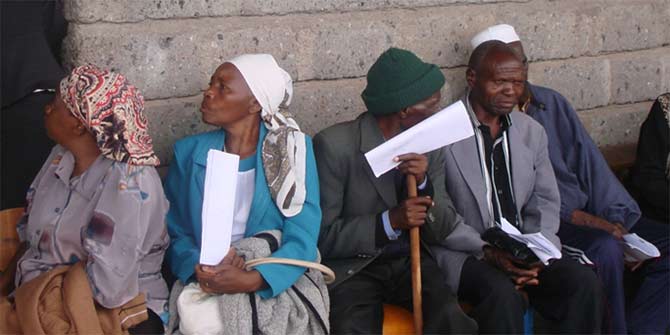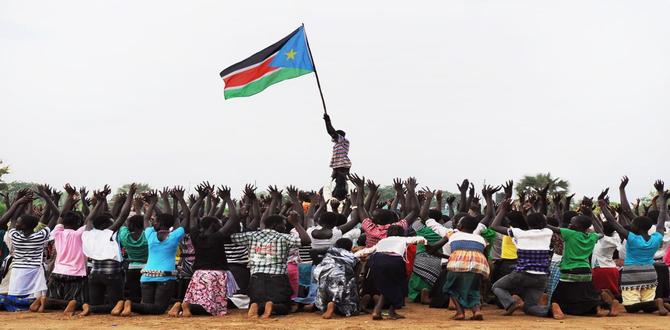Noah Miller analyses whether the impact of social media on the 2017 Kenya elections has been exaggerated. This article is part of our African Elections series.
At a roundtable discussion about hate speech held at the Aga Khan University Graduate School of Media and Communications a few days prior to Kenya’s August 8 2017 elections, I was asked if Kenya was witnessing a Twitter election, akin to the perception of the 2016 US polls.
My resolute answer was: No.
The question was not unreasonable because Kenya seems an ideal country to run political campaigns on social media, which engage particularly first-time voters and the so-called millennial (aged 18-35 years) voting block. Roughly half of Kenya’s 19.6 million registered voters in 2017 are millennials, and Kenya has a reputation of one of Africa’s leaders in connectivity.

According to the Communications Authority of Kenya, Kenya’s internet penetration rate is currently at 90 per cent. The Google Consumer Barometer estimated the smartphone adoption rate at 44 per cent in 2016, and the Bloggers Association of Kenya estimated that over 20 million users were on WhatsApp, Facebook, Instagram and Twitter in 2016, a figure that has presumably risen.
These statistics partly explain why the two dominant political parties, the National Super Alliance (NASA) and the Jubilee Party, hired data-mining companies, Aristotle, Inc. and Cambridge Analytica respectively. Several academic studies also support the notion that social media have been instrumental in winning elections around the world.
Kenya’s social media reality
Nevertheless, media and commentators have exaggerated the significance of social media during Kenya’s 2017 election. This is partly because the narrative around social media incorporated alarming topics such as fake news, hate speech, attack ads, and the fear that data mining companies could powerfully influence the election’s outcome.
A case in point is a recent Portland Communications / GeoPoll survey that found 90 per cent of respondents suspected having seen or heard false news or inaccurate information regarding the elections. Furthermore, 49 per cent of respondents stated that they receive news about the general election through social media.
These numbers seem disturbing and indeed there have been shocking cases of fake news. One infamous example was the circulation of a video, seemingly from the BBC, which highlighted polls showing that President Uhuru Kenyatta would win the election.
Yet, on the ground, social media cannot be shown to have significant impact on the electorate’s voting behavior, especially for people living outside Nairobi. First, fact checkers such as AfricaCheck, and other inquisitive minds often quickly debunked fake news. Second, the survey on fake news admitted “levels of trust in the accuracy of the information [on social media] was very low compared to more traditional news sources.” Third, and most important, social media such as Facebook and Twitter simply do not reach large numbers of voters outside Kenya’s capital.
This is antithetical to the commonly-held view that social media is everywhere in Kenya, but publicly-available data underscore the argument that social media was a fairly insignificant space to influence public opinion nationally.
The Independent Electoral and Boundaries Commission registered 19.6 million voters this year, of which 15.1 million cast their vote. In Nairobi County, registered voters totaled 2.2 million of which 1.6 million people actually voted. So Nairobi County represented only 10.6 per cent of Kenya’s voting population.
Let’s compare these voting figures with locations of social media users. Facebook Audience Insights estimates that 4.3 – 5.1 million users visit the platform monthly and 85 per cent of them are located in Nairobi. Mombasa accounts for 3 per cent of users, Eldoret and Nakuru for 0.9 percent each, and Kisumu occupies the 5th position with a user base of 0.6 percent.
A similar analysis was done by my own company, Sochin Limited, which looked at the geo-tagging of 728,074 Twitter posts: 85 per cent referenced Nairobi, 6.1 per cent Mombasa, 3.8 per cent Nakuru, 2.5 per cent Kisumu, and 2.5 per cent Uasin Gishu.
Both studies show that Kenya’s Facebook and Twitter users are largely concentrated in the capital, although there are knock-on effects when people travel and have offline conversations, and when media outlets report on trending social media topics.
The social media presence of incumbent governors and senators prior to the August 8 2017 elections corroborates the argument above. Another analysis by Sochin Limited showed that out of 47 incumbent governors, 12 had no Facebook or Twitter account, and only three had Facebook or Twitter followers in the six-figure count. Incumbent senators were even less likely to be on social media. Some politicians were perhaps averse to adopting modern forms of communication, or they believed social media would not be decisive for communicating with their constituents.
Final thoughts
In a tightly-contested presidential election, where every vote counts, social media can make a difference through selective audience targeting and persuasive messaging. Reaching out to voters on social media in Nairobi and other urban centres is vital for politicians.
However, a social messaging application such as WhatsApp may have been a more effective communication tool. More popular than Facebook or Twitter in Kenya, it enables the sharing of images and video, and it allows for content to cascade through groups. WhatsApp also does not employ an algorithm that limits organic reach.
As we look ahead to the 2022 elections, social media will gain in importance, as connectivity grows, and especially as data mining companies amass more information on voters and build detailed audience profiles. Then there will be no escape from artificial intelligence and the ‘tyranny of numbers’ during election time.
Noah Miller is the Managing Director of Sochin Limited and a LSE alumnus.
The views expressed in this post are those of the author and in no way reflect those of the Africa at LSE blog, the Firoz Lalji Centre for Africa or the London School of Economics and Political Science.






This article is great, well analyzed and detailed. It gives a clear picture of what Kenya is like politically.
Great article. It’s a shame that Whatsapp data is so difficult to track…so much of what is shared on WhatsApp, in my experience comes from Facebook or Twitter, so that might actually tip the scales if one were able to analyse just how much fake news came from one Facebook/Twitter download and was shared widely on WhatsApp. The biggest “culprits” seem to be parents new to WhatsApp, sharing forwarded messages left, right and centre to fuel their own, sometimes narrow, beliefs.
Hi Naitash, you make a really interesting point about how social media platforms and WhatsApp converge and amplify each other. Every user has a responsibility when distributing content and it’s important to use a few fact checking guidelines before sharing.
I’m a freelance digital marketer in Kenya and it feels like I’m connecting more dots everyday.
We recently had to take a huduma number. it was not clearly explained to us what it was and why we all had to get one.
It included a list of questions that went to the fine details like what number of bedrooms your house has. People from across the country *with and without smartphones had to take part and get a huduma number with deadlines and threats of not getting access to government services circulating the streets.
That data was saved online as I remember the huduma guys had tablets that they used to collect our data.
No need for social media to incentivize people to take part in Q and As when the government can make you give away your personal information just so they can retarget you more accurately.
Either way, I know something is cooking.
I hope more people are able to be aware of these undercurrents and be careful about the information that they share. I know how accurate fb, google and youtube ads can be at targeting as far as marketing goes….whatsapp statuses don’t help either with people constantly reposting from each other.
God help us in 2022